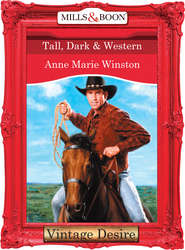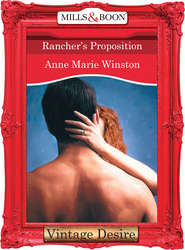По всем вопросам обращайтесь на: info@litportal.ru
(©) 2003-2024.
✖
Holiday Confessions
Автор
Год написания книги
2018
Настройки чтения
Размер шрифта
Высота строк
Поля
“Are you in the middle of the clock or at the six?”
He had to grin. It was a legitimate question. “The middle.”
“Two o’clock,” she said promptly.
He reached out, gauging the distance down to the coffee table, and was gratified when his fingers encountered the edge of a plate. It had little ridges around the edge, and…there. He picked up a cookie and brought it to his nose. “I’m not sure I can bring myself to eat this. I might just sniff it for the rest of my life.”
“I can give you the recipe,” she pointed out. “It’s not like you’ll never see them again.”
Instantly he could tell that she realized what she’d said. There was a short, horrified silence.
“Oh, cuss,” she said with feeling. “I am so sorry. What a thoughtless comment.”
“Cuss?” He was struggling not to laugh aloud. Most of the people he knew didn’t bother to censor their language.
Again he suspected that she shrugged. Then she said, “It’s a nice satisfying mix of consonants to mutter when I’m mad. I don’t like to use—or hear—strong language.”
“Cuss.” He said it again. Kendra hadn’t liked foul language, either. It was one of the little things he’d loved about her. “Works for me.”
Thinking of his former fiancée made him realize that he hadn’t thought of her in a long time.
“Anyway,” Lynne said, “I was in the middle of a major apology.”
“Unnecessary apology. It’s just an expression like ‘I see.’ You don’t have to censor your vocabulary.”
He made a show of taking another bite of his cookie and miming pleasure, hoping to get past the awkward moment. Since he’d lost his sight, the only woman he’d gone out with was Kendra. And after they’d broken up, he’d stayed as far away from the dating scene as possible for a while. In recent years, he’d dated some, but it had never seemed right; something within him just hadn’t been interested enough to pursue a relationship.
“I’m glad you like the cookies,” she said. “Would you like to come over for dinner tomorrow night? There are more where these came from.”
“Thank you, but no.” His refusal was automatic. He might have almost mastered the art of eating without seeing his food, but he had a serious dread of making a fool of himself. “I have the dogs and—”
“You’re welcome to bring them. A little dog hair is not going to ruin my home.”
“You really don’t have to do that.” She felt obligated because she’d tripped him up in the hallway; he already could tell she was the kind of person who would take something like that to heart.
“I want to,” she said. “I know virtually no one here. You can tell me about the town.”
Well, hell. He could think it, even if he wasn’t going to say it aloud. Without telling her an outright lie, there was no graceful way to get out of it. “All right. What time?”
“Is six-thirty okay?”
“Yes.”
“Any special requests?”
“No spaghetti, please.”
He could tell he’d startled her. Then she laughed. “I guess that is a bit of a problem food, isn’t it? Okay. No spaghetti, I promise.”
He couldn’t place her accent. The way she’d said, “a bit of a problem” had sounded almost British. But every once in a while he thought he detected in her drawled syllables a hint of the South as well. Maybe tomorrow night he could steer the conversation in her direction. It would be a nice change from his usual routine of answering questions about his vision issues and his dog.
Lynne finally got the last packing box out of her new home. In just two days, after the furniture had arrived yesterday, she’d gotten most things in their proper places. Not many pictures on the walls or other personal decor, but that was something that would happen eventually.
The whole place needed a good vacuuming after she was done, and then she made another batch of cookies. She decided to make a chicken and bake some potatoes, and mixed up some honey-and-wheat bread dough. After she got it rising in the bread machine, she rinsed broccoli to steam later.
Cooking and baking still felt vaguely like forbidden fun. She’d spent almost ten years modeling, worrying about every extra ounce she gained, keeping her body at a weight far thinner than she would be naturally. Since she’d stopped, she’d gained nearly fifteen pounds. But she’d done it carefully and when she’d felt as if she looked more like a normal human being than a scarecrow in stilettos, she’d stopped and concentrated on maintaining that weight. It was ridiculously easy compared to the rigid diet she’d adhered to in the past.
As she soaked her aching body in a gloriously hot, soothing bath, she worked a cramp out of her calf, wincing as she kneaded the knotted muscle. She had to admit, even to herself, that she’d gotten a little carried away with the unpacking, cleaning and baking today. It would be pretty mortifying if she yawned in Brendan’s face. Or even worse, if she fell asleep!
With that thought in mind, she drank a soda loaded with caffeine as she set the table a few minutes before six-thirty, then rushed into her bedroom to put her hair up again.
Her hand stilled as she realized what she was doing. Brendan couldn’t see what she looked like! The realization was a surprisingly freeing thought. Tonight she would be judged solely on her character and conversation, on what she was like as a person. Her looks would never even enter into the mix.
It might be freeing, but it also was terrifying, she decided. What if she wasn’t an interesting person?
Two
B rendan finished washing up the bowls from the dogs’ dinner. He’d already taken each one out, but as he listened to the time, he realized he’d better get moving if he didn’t want to be late to dinner with his new neighbor.
He was pretty sure his shirt and slacks from the office were still clean, but he wasn’t taking any chances, so he headed into his bedroom to change. Clean pants. His fingers found pants hangers and he chose khakis rather than jeans and pulled out a brown belt, identified by the tiny Braille tag he’d used to label it.
He passed by the suits paired with dress shirts and matching ties on the metal hangers and felt the plastic ones that were his system for locating casual shirts. Better get a clean shirt, too. Showing up with an ink stain or food smeared on his collar wasn’t the impression he wanted to make.
He was running his fingertips over the label that clued him in to color when his hand stilled on the knit shirt he’d chosen. Since when did he care about making an impression on a woman?
Quickly he finished dressing and called the dogs. He harnessed Cedar and put a leash on Feather. She tried repeatedly to shove her way between Cedar and him, and when he finally used a stern tone, she skulked behind him as if he’d beaten her with a stick.
“I’m sorry, girl,” he told her as he stood in front of Lynne DeVane’s door. “I’m doing the best I can to make this work.”
“Make what work?” Lynne opened the door in time to hear his last comment.
He forced a laugh. “Sorry. I don’t usually stand around talking to my dogs.”
“Really?” Her tone held amusement.
He thought about it. “Okay, maybe I do.”
“I don’t blame you. They pay attention to what you’re saying more than people do most of the time.” The direction of her voice shifted and he realized she had stepped back so that he could enter. “Please come in and have a seat. But then you have to tell me what you were talking about.”
As he entered her apartment, he told Cedar, “Find a chair.”
“I didn’t realize you taught them things like that,” she said as Cedar took him across the room and he found a large wing chair with his outstretched hand.
“Good boy,” he said to the dog. To Lynne, he said, “It isn’t a formal command taught by the school, but when I first got Feather, another guide dog user suggested that it might be a useful command, along with things like, ‘find the door.’ Some people use specific commands to find a family member in a large store.” He’d chosen finding a chair for the first thing he’d teach Cedar, and already his big black dog was catching on.
“How long have you had Cedar?”
“We just graduated from the training school two weeks ago.”











